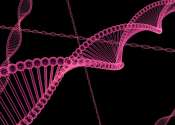PhD student bioengineers potato plant to detect gamma radiation
A researcher at the University of Tennessee Herbert College of Agriculture has developed a potato plant that can detect gamma radiation, providing reliable indications of harmful radiation levels without complex monitoring ...









